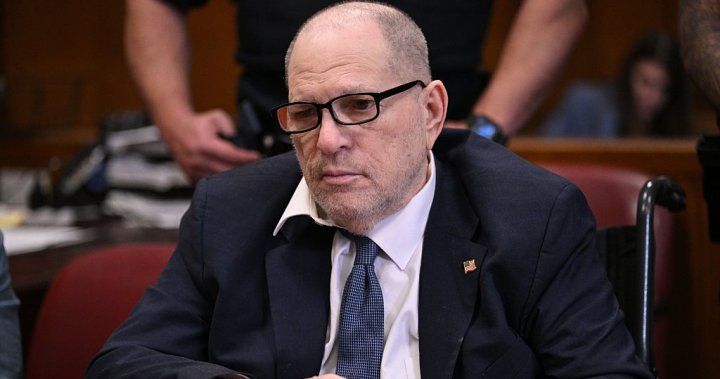Harvey Weinstein’s high-profile New York rape retrial commenced in April 2025 following the overturning of his 2020 conviction by the state’s highest court. The original verdict was set aside due to procedural errors regarding the admission of testimony from women whose allegations were not formally charged, prompting a new trial focusing on sexual assault claims from three women, including two from the previous case and one new accuser. The retrial offers a critical examination of legal procedures in prosecuting sexual violence, occurring amidst shifting public attitudes influenced by the evolving #MeToo movement. Weinstein, already serving a sentence from a separate conviction, faces renewed scrutiny as the trial unfolds in the same courthouse but under less intense public spectacle than before.
The retrial of Harvey Weinstein began in a Manhattan courtroom in April 2025, marking a significant legal development following the landmark appellate decision that overturned his 2020 conviction. The New York Court of Appeals identified procedural errors in the original proceedings, specifically concerning the admissibility of testimony from additional accusers whose charges were not part of the initial indictment. This ruling necessitated a fresh trial, limited to evidence and charges strictly pertinent to the sexual assault claims brought by three women. Two of these women were accusers from the 2020 trial, while the third has come forward more recently, adding new dimensions to the case.
Legal experts emphasize that the retrial underscores nuanced challenges in prosecuting sexual violence cases, particularly the balance between fair trial rights and the comprehensive presentation of victim testimony. The court’s decision to exclude certain testimonies reflects a judicial intent to ensure procedural fairness, though it has generated debate among advocates and critics about the implications for victims’ voices and broader accountability.
Case Background and Charges
Harvey Weinstein, the former film producer whose downfall catalyzed the #MeToo movement, was originally convicted in 2020 of criminal sexual acts and rape in the first degree. The conviction was hailed as a milestone for survivors of sexual abuse by persons in powerful positions. However, the appellate court’s reversal points to legal complexities that can arise in cases involving multiple accusers and overlapping charges. Weinstein’s retrial now focuses on three distinct counts related specifically to incidents involving the three accusers, with testimony and evidence limited to these events.
Impact on the Legal Landscape
The trial is widely observed as a critical test of New York’s approach to handling sexual assault allegations, particularly in light of reforms enacted in recent years to support survivors while safeguarding defendants’ constitutional rights. Prosecutors and defense attorneys alike are closely monitoring the proceedings for precedents that may influence future cases. This retrial may shape courtroom standards on evidence admission, witness credibility, and the role of corroborative testimony in sexual offense prosecutions.
Public and Cultural Context
The retrial occurs within an evolving social context where public attitudes toward sexual misconduct and institutional accountability continue to develop. While the initial Weinstein conviction galvanized global attention and empowered survivors to speak out, the current trial is unfolding with comparatively subdued media coverage and public engagement. Observers attribute the change partly to the passage of time, competing news narratives, and a complex legal focus that may resonate less immediately with the broader public than the original case.
Current Status of Weinstein
Harvey Weinstein remains incarcerated, serving sentences from his convictions in unrelated cases, including a significant term in California for separate sexual offenses. The New York retrial does not affect his current imprisonment but poses potential additional legal ramifications if convictions are re-established. His legal team continues to advocate for dismissal or acquittal based on claims of procedural error and insufficient evidence.
As the trial proceeds, stakeholders anticipate ongoing legal arguments over evidentiary rules and witness testimonies. The court’s handling of these issues will not only determine the verdict but may also influence how sexual violence cases are prosecuted across the United States in the future.
In conclusion, Harvey Weinstein’s 2025 retrial in New York represents a pivotal moment in the ongoing legal and societal reckoning with sexual violence. The case highlights the intricate balance courts must achieve between ensuring fair trial procedures and giving due weight to survivors’ testimonies. As the trial unfolds within a transformed social and legal environment, its outcomes are poised to impact not only Weinstein’s legal fate but also the broader framework for prosecuting sexual assault cases. With significant attention from legal experts and advocates alike, the retrial serves as a crucial benchmark for future judicial approaches to similar allegations, reflecting the complexities inherent in addressing historic and evolving claims of misconduct.

